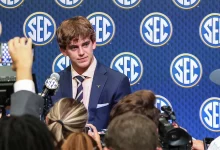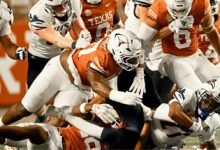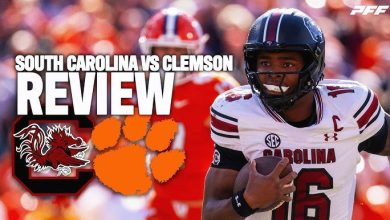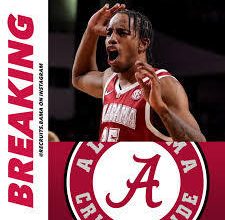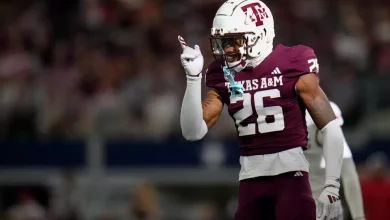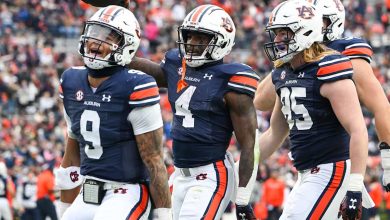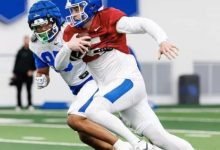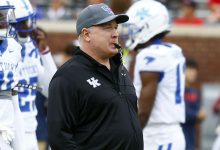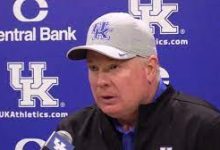This Is the Undisputed All-Time Los Angeles Lakers Lineup
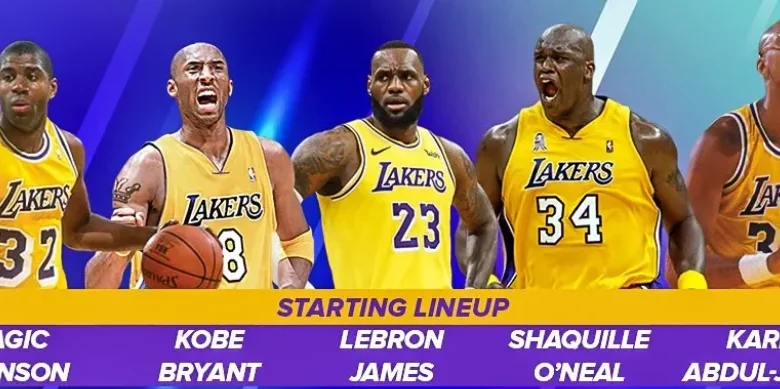
The Los Angeles Lakers are one of the most iconic franchises in all of professional sports. With a history stretching back to their days as the Minneapolis Lakers in the 1940s, this team has featured some of the greatest players to ever grace a basketball court. Boasting a legacy of championships, MVPs, All-Stars, and Hall of Famers, assembling an all-time Lakers lineup is no easy task. But some legends have defined eras, dominated opponents, and delivered the kind of excellence that forever links them with purple and gold. To create an undisputed all-time Lakers lineup, we must look not just at raw statistics, but at the impact, legacy, and contributions of each player during their time with the franchise. After evaluating eras from George Mikan’s reign to LeBron James’s ongoing tenure, a definitive all-time starting five emerges—each player representing the absolute pinnacle of greatness in their position within Lakers lore.
At the point guard position, Magic Johnson stands alone. Not just in Lakers history, but in the history of the NBA, Magic is the quintessential floor general. Measuring 6-foot-9 with the vision of a quarterback and the creativity of an artist, Magic revolutionized the game. Drafted first overall in 1979, he made an immediate impact by leading the Lakers to a championship in his rookie season, famously playing center in Game 6 of the NBA Finals when Kareem Abdul-Jabbar was injured. Over his illustrious career, he would go on to win five championships and three league MVPs. Magic’s flair for the dramatic, his unselfish playmaking, and his leadership on and off the court made him the heartbeat of the “Showtime” Lakers of the 1980s. With career averages of 19.5 points, 11.2 assists, and 7.2 rebounds per game, along with nine trips to the NBA Finals, he defines the point guard position for the Lakers like no other.
The shooting guard slot is filled by none other than Kobe Bryant, the Black Mamba. His 20-year career with the Lakers is a testament to loyalty, relentless work ethic, and competitive fire. Kobe entered the league as a teenager and eventually grew into one of the most lethal scorers and fiercest competitors the NBA has ever seen. Winning five championships with the Lakers, two Finals MVPs, and one regular-season MVP, Kobe’s legacy is etched in stone. He scored 81 points in a single game, the second-highest total in NBA history, and finished his career third on the all-time scoring list at the time of his retirement. But beyond the stats, Kobe symbolized the Laker brand of greatness—demanding the best from himself and those around him. Whether it was his clutch performances, his unforgettable duels with rivals, or his unforgettable 60-point farewell performance, Kobe’s impact on the Lakers franchise and basketball culture is immeasurable.
Small forward is perhaps the most contested position in the all-time Lakers lineup, but Elgin Baylor earns the nod. Baylor’s brilliance predated the flash of Showtime and the dominance of the Shaq-Kobe era, but his impact was no less significant. As one of the first players to bring athleticism and above-the-rim play to the NBA, Baylor was a revolutionary talent. Over 14 seasons with the Lakers, he averaged an astonishing 27.4 points and 13.5 rebounds per game. Baylor was an eleven-time All-Star and ten-time All-NBA First Team selection. While he never captured an NBA title, his excellence laid the foundation for the Lakers’ future success in Los Angeles. Baylor played with grace, strength, and intelligence, often dominating in an era that offered little support or protection for scorers. His presence in the franchise’s history is a constant reminder of how greatness can exist even without rings, and his influence is still felt through the evolution of the forward position.
At power forward, it’s Tim Duncan’s opposite number and the heartbeat of the early 2000s Lakers—yet that spot goes to none other than Kareem Abdul-Jabbar, albeit as a forward only for lineup balance, given his natural center position. Still, in this hypothetical alignment, we accommodate him beside Shaquille O’Neal. Kareem’s time with the Lakers was nothing short of legendary. Though he played his first six seasons with the Milwaukee Bucks, he spent the final 14 years of his career in Los Angeles, where he helped anchor five championship teams. With his signature skyhook—a shot nearly impossible to block—Kareem became the NBA’s all-time leading scorer, a record he held until 2023. During his Lakers tenure, he won three of his six total MVPs and was the bedrock of consistency and excellence throughout the 1980s. His ability to score efficiently, defend the rim, and play within the team concept made him indispensable. Even in his late 30s, Kareem was a key contributor to championship teams, a testament to his preparation and skill.
At center, there is no denying the raw dominance and larger-than-life presence of Shaquille O’Neal. Though Wilt Chamberlain also wore the purple and gold and remains a legend in his own right, Shaq’s prime with the Lakers was one of the most unstoppable runs in NBA history. From 1996 to 2004, Shaq brought intimidation, athleticism, and charisma to the center position. During the Lakers’ three-peat from 2000 to 2002, Shaq was virtually unguardable. He won three Finals MVPs and captured the league MVP in 2000. At 7-foot-1 and over 300 pounds, Shaq combined size, strength, and surprising agility to overwhelm defenders. His partnership with Kobe Bryant became one of the most talked-about and potent duos in basketball history. Despite off-court tension, their on-court dominance delivered results. Shaq was more than a force; he was a phenomenon. His personality made him a global icon, but his play on the court made him an all-time great.
Of course, in creating an undisputed all-time Lakers lineup, one must consider the bench and the coaching staff, even if the focus remains on the starting five. Legends like Jerry West, who not only starred on the court but later built Lakers dynasties as a general manager, just narrowly miss the cut due to the depth of talent at guard. West averaged 27 points per game in his career and was the Finals MVP despite being on the losing team in 1969. Then there’s Wilt Chamberlain, who helped lead the Lakers to the 1972 championship and was a statistical marvel. Likewise, James Worthy, a key cog in the Showtime Lakers, delivered when it mattered most—his 36-point, 16-rebound, 10-assist performance in Game 7 of the 1988 Finals earned him the nickname “Big Game James.” Pau Gasol, whose acquisition reignited the Lakers’ title hopes in the late 2000s, also deserves recognition for his skill, intelligence, and perfect complement to Kobe during their back-to-back championships in 2009 and 2010.
And then there’s LeBron James. While much of his storied career was written in Cleveland and Miami, his tenure with the Lakers has still been impactful. Leading the team to the 2020 NBA championship in the Orlando bubble during a season disrupted by a global pandemic, LeBron added to the Lakers’ illustrious trophy case. He became the league’s all-time leading scorer while wearing purple and gold, and continues to defy age, producing at an elite level well into his 20s season. Depending on how the rest of his Lakers career unfolds, he may ultimately find a place in the starting lineup of such a discussion, especially if he can lead them to another title.
A discussion of the Lakers’ all-time lineup would be incomplete without acknowledging the legendary coaches who have shaped these great players. Phil Jackson stands out, having led the Lakers to five titles in the 2000s. His implementation of the triangle offense, his ability to manage egos, and his calm demeanor under pressure made him the perfect leader for a team full of superstars. Pat Riley also deserves enormous credit for orchestrating the Showtime Lakers of the 1980s. His fiery leadership, combined with strategic brilliance, resulted in four championships during the Magic-Kareem era. Both men are symbols of Lakers excellence and have helped shape the culture of winning that defines the franchise.
What separates the Lakers from most other NBA teams is not just their history of winning, but the sheer volume of transcendent talent that has passed through their ranks. The franchise has been a destination for greatness, a place where stars shine brighter and legends are made. The all-time Lakers starting five of Magic Johnson, Kobe Bryant, Elgin Baylor, Kareem Abdul-Jabbar, and Shaquille O’Neal is not just a collection of incredible individual talent—it is a testament to the standard of excellence the Lakers embody. Each player brought something unique to the table, but they all share the common thread of dominating their era while wearing the Lakers uniform.
From the glamour of Hollywood to the banners hanging from the rafters at Crypto.com Arena (formerly Staples Center), the Lakers are synonymous with success. They are more than a basketball team—they are a global brand, a cultural force, and a standard by which greatness is measured. Their all-time lineup reflects this ethos. These aren’t just the best players—they are icons, legends, and representatives of what it means to be a Laker. Whether through the fast breaks of Magic, the cold-blooded scoring of Kobe, the high-flying grace of Baylor, the unstoppable skyhook of Kareem, or the overpowering dunks of Shaq, the Lakers’ all-time team tells the story of a franchise that has not only won, but defined what winning looks like.
Even as the game evolves and new generations of stars emerge, the Lakers continue to be a beacon for

